My new book, Get Better at Anything, came out two weeks ago. Thanks again to everyone who has bought it so far! For those of you who have already dived headfirst into the book, I would greatly appreciate a review on Amazon—reviews make a big difference in helping new people discover the book.
The central idea of my new book is that three factors determine how quickly we can learn: seeing examples from others, doing practice ourselves, and getting feedback on our work. These ingredients may seem simple, but getting them right is often tricky.
Based on the research I explain in my new book, this post outlines seven common reasons why our efforts at improvement stall—and how we can get unstuck.
1. You don’t know the right technique.
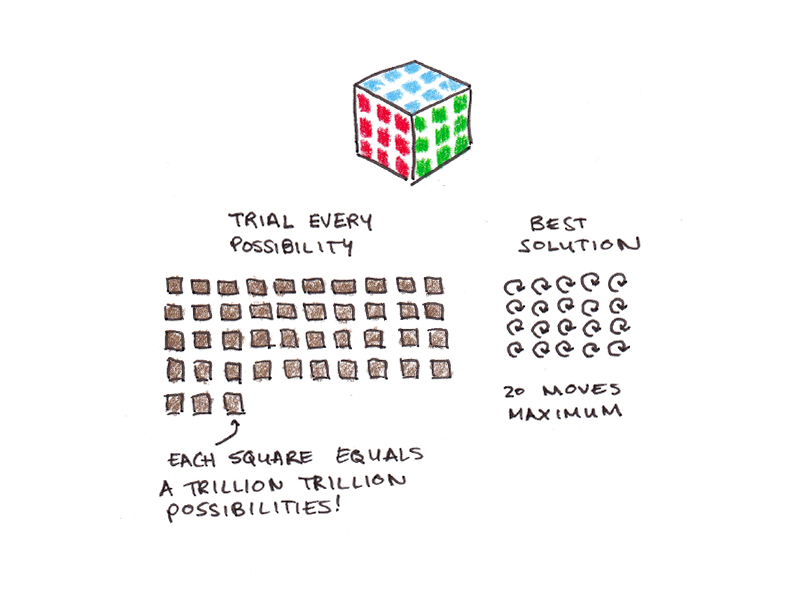
Almost everything we know comes from other people. Science, art, business and culture are all cumulative efforts that build upon the hard-won methods and insights of the past. Therefore, the most fundamental difficulty we encounter in improving is not knowing (or not having access to) the best methods for solving a problem.
Consider solving a Rubik’s Cube. The possible combinations of the 3×3 cube are vast—over 43 quintillion possible configurations. Assuming each move takes a second, trying them one by one would take longer than the age of the universe. But with the right technique, any configuration can be solved in under twenty twists.
The starting point for any improvement effort, therefore, is to figure out how people who succeed with the skill already do it.
2. You don’t have enough background knowledge.
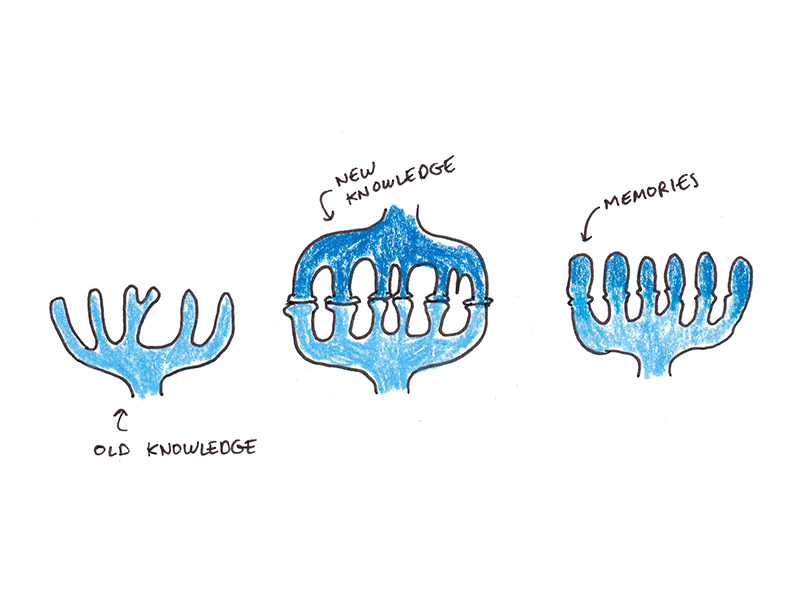
The difficulty of skills and subjects isn’t fixed. It always depends on what you already know. If you only know English, a lesson taught in Japanese would be mystifying, no matter how smart you are. Yet the same lesson might not be difficult for a kindergartener from Tokyo.
That’s an obvious example, but the influence of background knowledge can be much harder to spot. Knowing more about a subject, for instance, impacts how much you remember from a text more than raw reading ability or intelligence does.1 This makes the relative contribution of raw ability and prior experience harder to untangle—are you really lacking talent, or do you just have less experience with the prerequisites?
The key to building high is to secure a solid foundation. Figure out what the prerequisite ideas, knowledge, procedures and skills are in a domain, and make sure you’ve truly mastered those whenever you get stuck on a challenging class or problem.
3. You’re not getting enough practice time.
Practice tends to speed skills up and make them more automatic, fluent and accurate. In intellectual domains, increased practice can reduce the amount of cognitive load needed to perform a skill, meaning you can handle more complicated tasks than you could when you started.
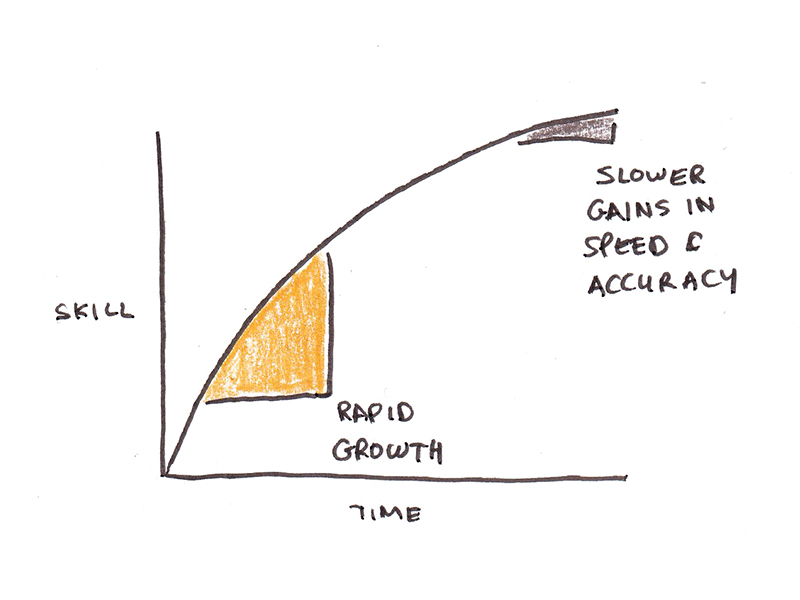
The power law of practice suggests that this improvement in performance from repeated practice follows a curve that starts out steep and slowly flattens over time. Even so, the number of repetitions needed to achieve mastery can take a while to accumulate—in one experiment, cigar rollers continued to get better, even after tens of thousands of repetitions.
No clever method or hack can make up for a lack of practice.
4. You’re practicing the wrong skill.
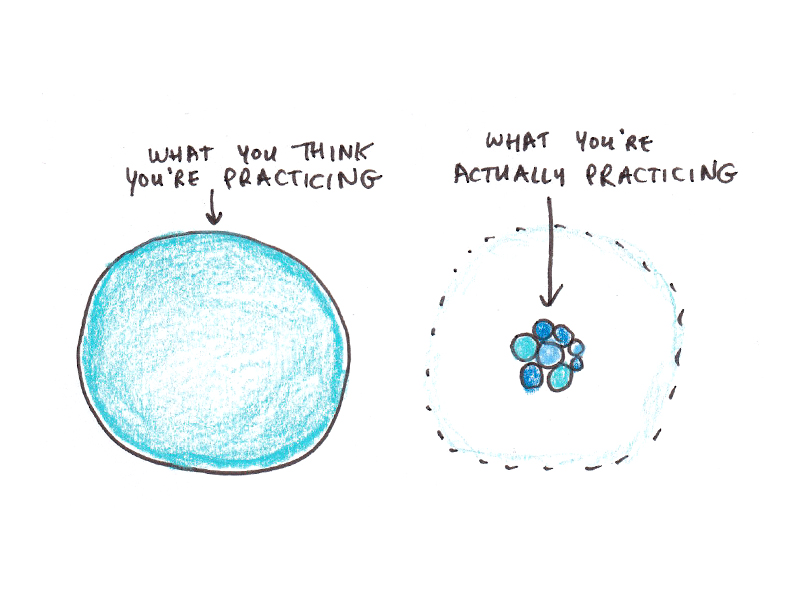
Practice helps, but it’s not a panacea.
Transfer, the measure of how much practice on one task improves performance in another, has frequently been shown to be narrower than people assume. This means that ample practice on the wrong skill, in the wrong environment, or with the wrong supports can result in minimal improvement in the skill you are trying to improve.
Any attempt at improvement needs to start by getting clear on what—exactly—you’re trying to get good at, breaking down vague abilities into concrete tasks, methods, ideas or judgements. Once you’ve done that, you can tailor your practice more directly to those parts that matter to you.
5. You’re not able to learn from your mistakes.
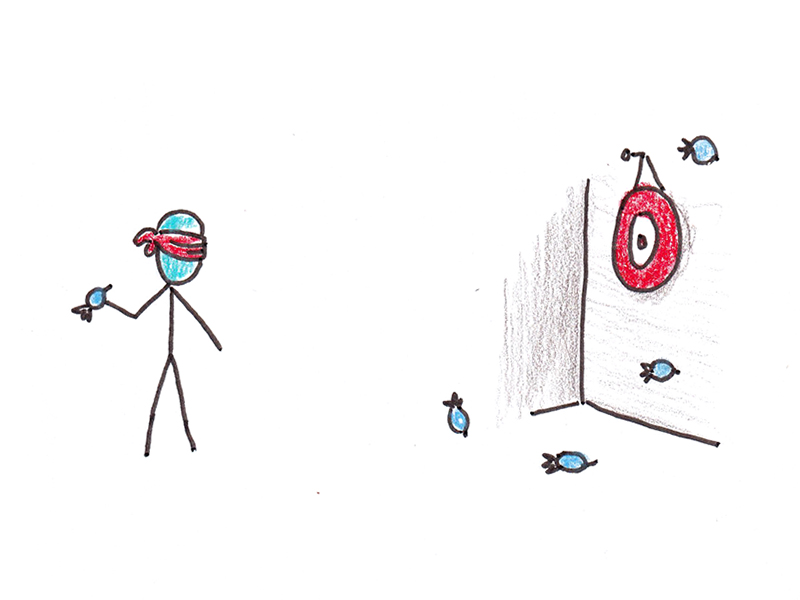
Without good feedback, improvement is often impossible.
The great psychologist Edward Thorndike discovered this in an early experiment. Participants attempted to draw lines of a particular length while blindfolded.2 Being unable to see how long their strokes were, they made no improvement even after thousands of trials.
While it may seem silly to draw lines with your eyes closed, many of us do something equivalent when we try to improve in areas of our lives. We recruit candidates, but never track how well the people we turn down do. We estimate project lengths, but never check whether our past efforts were on time and on budget. There’s a large body of scientific literature documenting the rather mediocre performance of domain experts in decision-making tasks with weak cues and poor feedback.3
Tons of experience can lead to overconfidence, not expertise, if your practice isn’t informed by clear, calibrating feedback.
6. Your environment is too challenging—or not challenging enough.
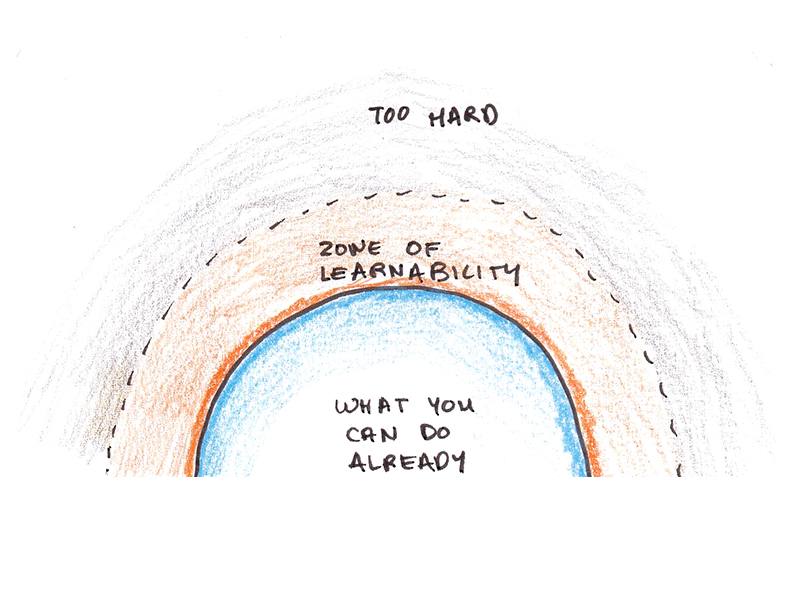
An extremely difficult challenge doesn’t maximize learning. As with the Rubik’s Cube, if you face a problem without knowing the best methods, you can waste years and never figure them out on your own. Tackling a complicated challenge may make it harder to infer the basic principles.
It’s better to build from a strong foundation. But even with the best foundation in relevant background knowledge and skills, increased challenges are needed to keep making progress. This is for two reasons:
First, if we continue working only on easier tasks, we may never reach the heights we really want to perform at. If you stick to flashcards when learning a language, you may never graduate to having a conversation. If you only write essays, you may never finish a book. Many skills are a continuum of complexity, and if the goal is to do something impressive, we need to keep making progress through that range.
Second, we tend to adjust our performance only when we get feedback from the environment indicating something is insufficient. If we stick to the same difficulty level, we may find a solution that “works” but isn’t ideal. Repeated practice, then, tends to make our performance smoother and more automatic, but we may never get the nudge to up our game.
7. You don’t have the right mental model for how learning works.
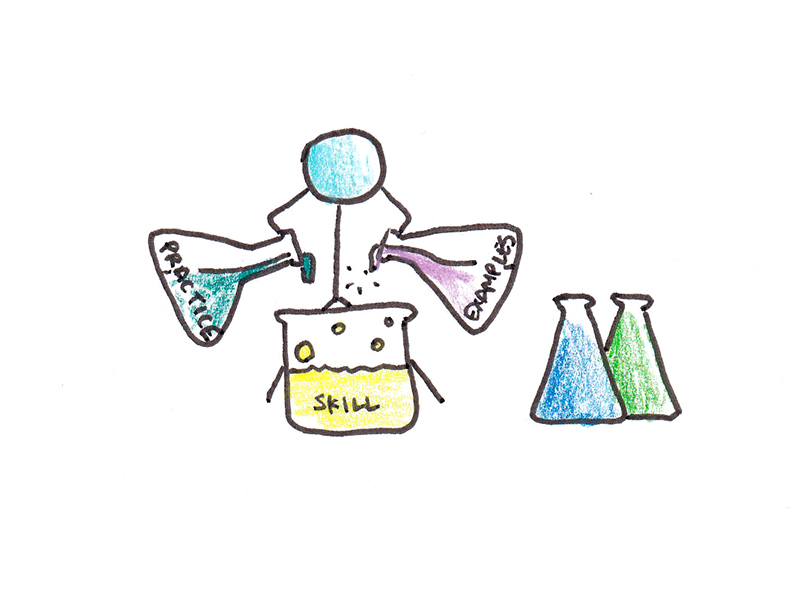
As with anything in life, your ability to troubleshoot depends on having an adequate mental model to explain how something works. You can’t fix your car, computer or even your career if you don’t know what really underlies progress.
The research on learning is vast and complicated, but the basic mental models that underlie how learning works can be understood by almost anyone. Having an accurate understanding of a field you are learning or a goal you want to achieve makes a big difference since it can help you diagnose mistakes before you become immovably stuck.
Part of my motivation for writing Get Better at Anything was to try to provide those mental models. If you want to learn more, click here to get a free chapter of the book!
Footnotes
- Recht, Donna R., and Lauren Leslie. “Effect of prior knowledge on good and poor readers’ memory of text.” Journal of educational psychology 80, no. 1 (1988): 16.
- Thorndike, Human Learning.
- Grove, W. M., & Meehl, P. E. (1996). Comparative efficiency of informal (subjective, impressionistic) and formal (mechanical, algorithmic) prediction procedures: The clinical–statistical controversy. Psychology, Public Policy, and Law, 2(2), 293–323. https://doi.org/10.1037/1076-8971.2.2.293


 I'm a Wall Street Journal bestselling author, podcast host, computer programmer and an avid reader. Since 2006, I've published weekly essays on this website to help people like you learn and think better. My work has been featured in The New York Times, BBC, TEDx, Pocket, Business Insider and more. I don't promise I have all the answers, just a place to start.
I'm a Wall Street Journal bestselling author, podcast host, computer programmer and an avid reader. Since 2006, I've published weekly essays on this website to help people like you learn and think better. My work has been featured in The New York Times, BBC, TEDx, Pocket, Business Insider and more. I don't promise I have all the answers, just a place to start.